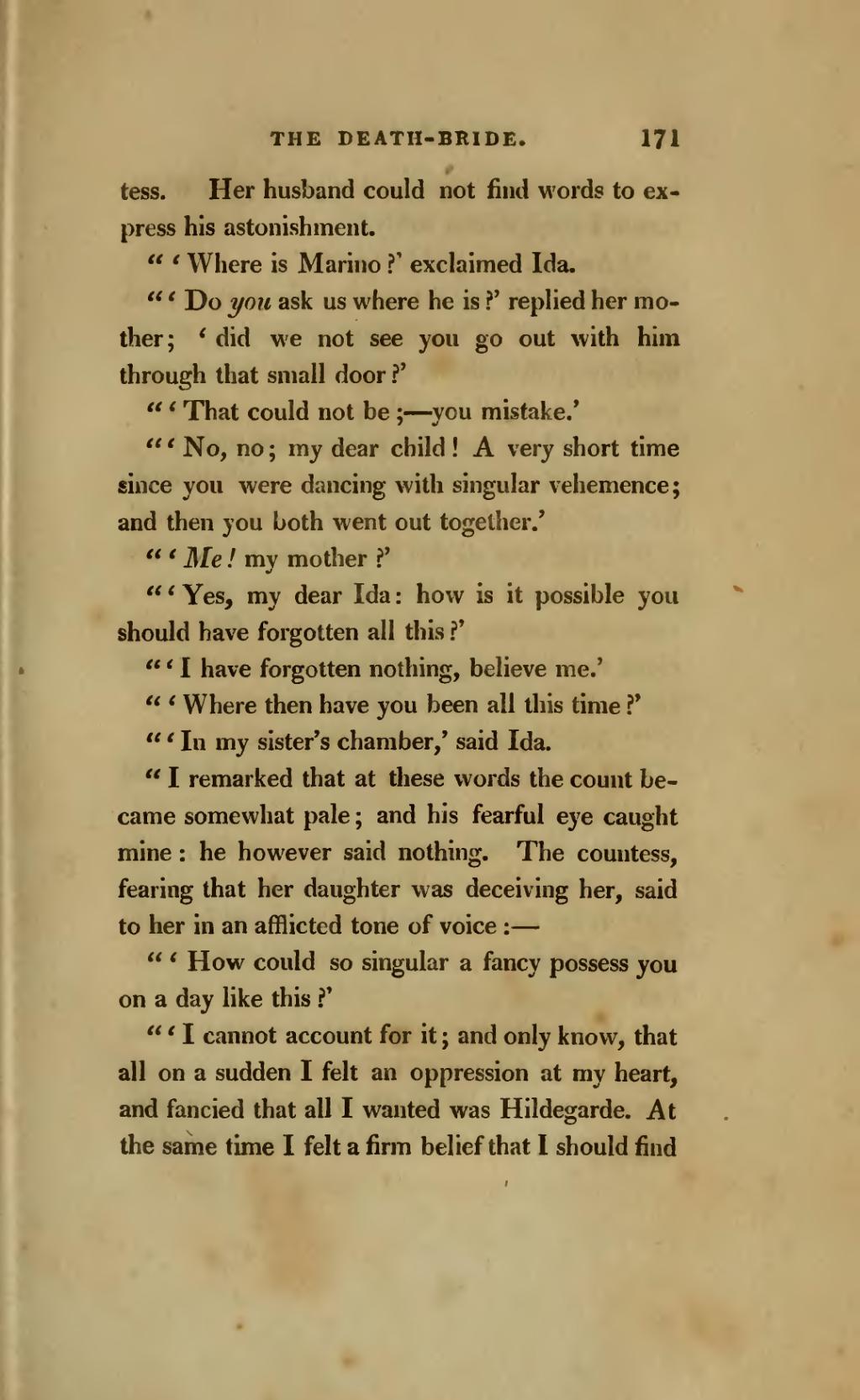tess. Her husband could not find words to express his astonishment.
“‘Where is Marino?’ exclaimed Ida.
“‘Do you ask us where he is?’ replied her mother; ‘did we not see you go out with him through that small door?’
“‘That could not be;—you mistake.’
“‘No, no; my dear child! A very short time since you were dancing with singular vehemence; and then you both went out together.’
“‘Me! my mother?’
“‘Yes, my dear Ida: how is it possible you should have forgotten all this?’
“‘I have forgotten nothing, believe me.’
“‘Where then have you been all this time?’
“‘In my sister’s chamber,’ said Ida.
“I remarked that at these words the count became somewhat pale; and his fearful eye caught mine: he however said nothing. The countess, fearing that her daughter was deceiving her, said to her in an afflicted tone of voice:—
“‘How could so singular a fancy possess you on a day like this?’
“‘I cannot account for it; and only know, that all on a sudden I felt an oppression at my heart, and fancied that all I wanted was Hildegarde. At the same time I felt a firm belief that I should find
